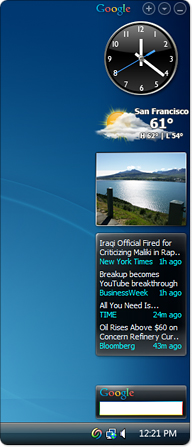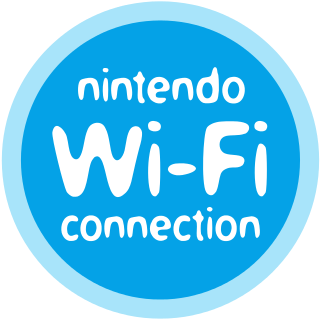Related Research Articles

AOL is an American web portal and online service provider based in New York City, and a brand marketed by Yahoo! Inc.

Webmail is an email service that can be accessed using a standard web browser. It contrasts with email service accessible through a specialised email client software. Additionally, many internet service providers (ISP) provide webmail as part of their internet service package. Similarly, some web hosting providers also provide webmail as a part of their hosting package.

Citrix Systems, Inc. is an American multinational cloud computing and virtualization technology company that provides server, application and desktop virtualization, networking, software as a service (SaaS), and cloud computing technologies. Citrix claims that their products are used by over 400,000 clients worldwide, including 99% of the Fortune 100 and 98% of the Fortune 500.
Google News is a news aggregator service developed by Google. It presents a continuous flow of links to articles organized from thousands of publishers and magazines. Google News is available as an app on Android, iOS, and the Web.

Scareware is a form of malware which uses social engineering to cause shock, anxiety, or the perception of a threat in order to manipulate users into buying unwanted software. Scareware is part of a class of malicious software that includes rogue security software, ransomware and other scam software that tricks users into believing their computer is infected with a virus, then suggests that they download and pay for fake antivirus software to remove it. Usually the virus is fictional and the software is non-functional or malware itself. According to the Anti-Phishing Working Group, the number of scareware packages in circulation rose from 2,850 to 9,287 in the second half of 2008. In the first half of 2009, the APWG identified a 585% increase in scareware programs.

A news ticker is a horizontal or vertical text-based display either in the form of a graphic that typically resides in the lower third of the screen space on a television station or network or as a long, thin scoreboard-style display seen around the facades of some offices or public buildings dedicated to presenting headlines or minor pieces of news. It is an evolution of the ticker tape, a continuous paper print-out of stock quotes from a printing telegraph which was mainly used in stock exchanges before the advance of technology in the 1960s.

Google Desktop was a computer program with desktop search capabilities, created by Google for Linux, Apple Mac OS X, and Microsoft Windows systems. It allowed text searches of a user's email messages, computer files, music, photos, chats, web pages viewed, and the ability to display "Google Gadgets" on the user's desktop in a sidebar.
A bell character is a device control code originally sent to ring a small electromechanical bell on tickers and other teleprinters and teletypewriters to alert operators at the other end of the line, often of an incoming message. Though tickers punched the bell codes into their tapes, printers generally do not print a character when the bell code is received. Bell codes are usually represented by the label "BEL". They have been used since 1870.

In computing, a news aggregator, also termed a feed aggregator, content aggregator, feed reader, news reader, or simply an aggregator, is client software or a web application that aggregates digital content such as online newspapers, blogs, podcasts, and video blogs (vlogs) in one location for easy viewing. The updates distributed may include journal tables of contents, podcasts, videos, and news items.

BBC iPlayer is a video on demand service from the BBC. The service is available on a wide range of devices, including mobile phones and tablets, personal computers and smart televisions. iPlayer services delivered to UK-based viewers feature no commercial advertising. The terms BBC iPlayer, iPlayer, and BBC Media Player refer to various methods of viewing or listening to the same content. To use the service, a valid TV Licence is required by law.

Nintendo Wi-Fi Connection was an online multiplayer gaming service run by Nintendo that formerly provided free online play in compatible Nintendo DS and Wii games. The service included the company's Wii Shop Channel and DSi Shop game download services. It also ran features for the Wii and Nintendo DS systems.

Microsoft Bing, commonly referred to as Bing, is a search engine owned and operated by Microsoft. The service traces its roots back to Microsoft's earlier search engines, including MSN Search, Windows Live Search, and Live Search. Bing offers a broad spectrum of search services, encompassing web, video, image, and map search products, all developed using ASP.NET.

The Megaphone desktop tool was a Windows "action alert" tool developed by Give Israel Your United Support (GIYUS) and distributed by World Union of Jewish Students, World Jewish Congress, The Jewish Agency for Israel, World Zionist Organization, StandWithUs, Hasbara fellowships, HonestReporting, and other pro-Israel public relations organizations. The tool was released in July during the 2006 Lebanon War. By June 2011, the tool was no longer available through the GIYUS website. An RSS newsfeed is available.
Rogue security software is a form of malicious software and internet fraud that misleads users into believing there is a virus on their computer and aims to convince them to pay for a fake malware removal tool that actually installs malware on their computer. It is a form of scareware that manipulates users through fear, and a form of ransomware. Rogue security software has been a serious security threat in desktop computing since 2008. An early example that gained infamy was SpySheriff and its clones, such as Nava Shield.
In computing, the term remote desktop refers to a software- or operating system feature that allows a personal computer's desktop environment to be run remotely from one system, while being displayed on a separate client device. Remote desktop applications have varying features. Some allow attaching to an existing user's session and "remote controlling", either displaying the remote control session or blanking the screen. Taking over a desktop remotely is a form of remote administration.

Livestation was a platform for distributing live television and radio broadcasts over a data network. It was originally developed by Skinkers Ltd. and is now an independent company called Livestation Ltd. The service was originally based on peer-to-peer technology acquired from Microsoft Research. Between mid-June 2013 and mid-July Livestation was unavailable to some subscribers due to technical issues.
EmailTray is a lightweight email client for the Microsoft Windows operating system. EmailTray was developed by Internet Promotion Agency S.A., a software development d.
BottomLine is ESPN's lower third sports information ticker. It is uniform in design and used on all ESPN networks. It displays current sports scores, stats, and headlines in a 'push-then-scroll' format. It also serves as a display for urgent information, such as breaking sports news, breaking significant national news from ESPN sister networks ABC and FX, updated scores, a rain delay notification, or the move of a game from one ESPN network to another. BottomLine is also used on the TSN channels in Canada and on the Latin American and Brazilean ESPN channels.

Google Now was a feature of Google Search of the Google app for Android and iOS. Google Now proactively delivered information to users to predict information they might need in the form of informational cards. Google Now branding is no longer used, but the functionality continues in the Google app and its discover tab.
References
- ↑ "BBC Alerts". 19 April 2004.
- ↑ "Closing the BBC News Desktop Alert and Ticker". BBC Website. 30 March 2011. https://www.bbc.co.uk/news/help-12855057